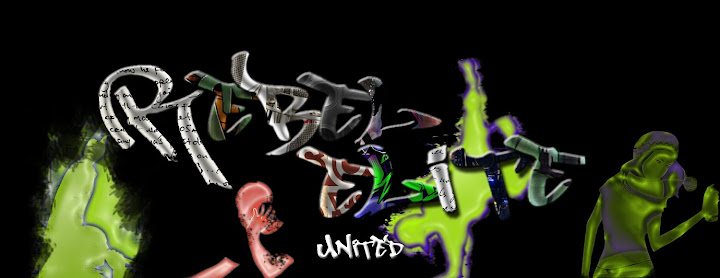Obviously, hip-hop is a sample-based art form. Therefore, this kind of epiphany is nothing new to the hip-hop listener. From 2Pac’s Changes to Eminem’s Sing For The Moment, recycling music is the name of the game. But when two (or even three) of the artists your admire most cop the same sample the results can be polarizing. After all, you’re bound to prefer one over the other right? A previous loyalty to one artist might invoke distaste for a newly discovered group.I recently downloaded Wordsmith’s “The Pursuit of Harmony” off iTunes (get the album now if you haven’t already; shit is ill) and when listening to the track entitled Coalition I was sure I'd heard it before:

Wordsmith - Coalition
After listening to the song on loop 4 or 5 times in a frustrated attempt to identify exactly where the hell I’d heard the melody, it finally hit me: one of my all-time favorite groups, Sweatshop Union, used the exact same sample in their 2005 single God Bless, off “United We Fall”:
-by-Sweatshop-Union_VuJdQFxPnNAx_full.jpg)
Sweatshop Union - God Bless
But the story doesn’t end there. The “original” is simply a sped up version of Füchse a track released in 1999 by German hip-hop group Absolute Beginner.

Absolute Beginner - Füchse
For all I know, this musical regression could go back even much further into the annals of hip hop history. But I think you get the point. What surprises me is the intolerance some people have when confronted with this sort of crisis of sampling. On YouTube there are accusations that Sweatshop Union “stole” the beat from Absolute Beginner. And I'm sure the avid Sweatshop fan might think the same thing when confronted with the Wordsmith track.
Point is, I didn’t drop the album and stop listening to Wordsmith. In fact, I found the parallel fascinating. It made me curious whether Wordsmith had heard Sweatshop’s track before recording his. Or, had both groups heard Absolute Beginner’s track independently.
In any event, the identity of all three of these songs rests very heavily on the melody in question. Indubitably, problems arise when an artist recycles a sample. Being labeled unoriginal and therefore ostensibly untalented can ruin an artists career. Look at Vanilla Ice.
That being said, the existence of multiple interpretations of a single piece of music is not necessarily a negative thing; in fact, it often times enriches the listener’s experience. The incredible thing about hip hop is its innate ability to breath new life into music that has been overwhelmingly played out.Hip-hop could be viewed as a perpetual revival of music beginning with the conception of an original melody or beat, and the subsequent evolution of that piece of music (each evolution documenting how an unique group in history related to that particular piece of music).
Don't get me wrong, Füchse is quality track (and you should peep the music video if you haven’t) but both the Sweatshop Union and Wordsmith variations keep the beat fresh. Then again, I’m a firm believer that in music, better to have too many options than too few. The more important thing to take away from this, perhaps, is that, as someone once said: “there are no original ideas left in this world, only ideas to be evolved.”
A credo, perhaps, for the modern artist. And becoming more-so.
Finally, a little something I found interesting in relation to re-sampling. The top 8 most “overused” samples in hip-hop history. Check it out: http://audio.tutsplus.com/articles/web-roundups/8-most-overused-samples-in-hip-hop-histor


